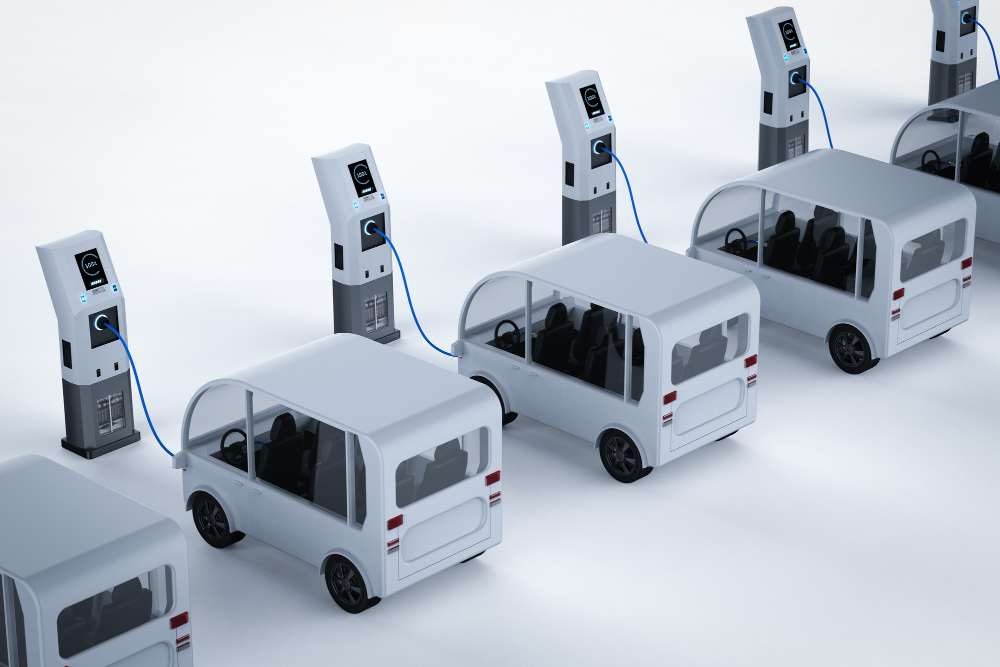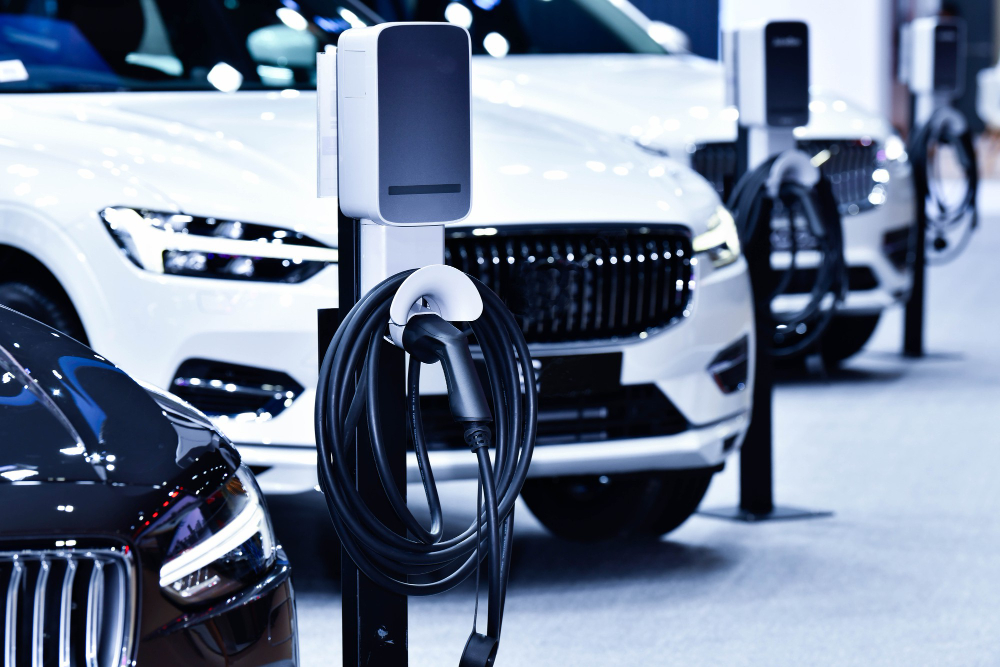Electric vehicles (EVs) have emerged as a cornerstone of this change, promising reduced carbon emissions and more environmental benefits. As businesses and organizations worldwide seek to embrace greener alternatives, the spotlight is firmly fixed on EV fleet management.
With the convergence of cutting-edge technologies and a growing emphasis on sustainable practices, the domain of electric vehicle fleet management is experiencing a revolution.
Read on to learn more about the remarkable innovations, strategies, and challenges within EV fleet management!
What is an EV Fleet?

An EV fleet comprises a group of electric vehicles used for various purposes, such as transportation, delivery, or services.
These vehicles rely on electric power instead of traditional internal combustion engines, significantly reducing greenhouse gas emissions and dependence on fossil fuels.
What is EV Fleet Management?

EV fleet management is an endeavor that entails the vigilant supervision, strategic execution, and meticulous fine-tuning of electric vehicle fleets.
This multifaceted discipline covers a spectrum of critical elements, ranging from establishing robust charging infrastructures and upholding optimal vehicle maintenance to orchestrating intelligent route optimizations and conducting insightful data analyses.
As the global adoption of EVs gathers momentum, the role of proficient EV fleet managers within a forward-looking fleet management company becomes paramount.
The synergy of these factors underscores the significance of efficient fleet management in ensuring not only operational seamlessness but also the environmental integrity of modern transportation systems.
Things to Consider Before Switching to an Electric Fleet

It would be best to consider several things before switching your vehicles to an EV fleet. Here is the checklist that covers those aspects:
Safety Comes First
Safety is paramount when managing any fleet; EV fleets are no exception. Operators need to provide proper training to EV drivers on EV handling, charging, and emergency procedures.
Understanding the unique characteristics of EVs, such as their safety features and quiet operation, can contribute to safer roadways.
EVs Cost Less to Maintain
When we look at electric cars (EVs) and regular cars with engines, EVs are simpler. They have fewer parts that move around, so they don’t need as much fixing.
Things like changing the oil and dealing with exhaust systems are not needed in EVs, which means that people who manage groups of these vehicles (fleet operators) can save money.
This kind of saving is good, especially when we think about using cleaner sources of power, known as renewable energy.
Electricity Equals Lower Fuel Costs
A big plus for EVs is that they don’t cost as much to run. Electricity usually costs less than gasoline or diesel, so that you can save money in the long run. You can make these savings even better by using smart charging plans.
What Should EV Fleet Operators Care About?

EV fleet operators must prioritize key factors for successful electric vehicle (EV) fleet operations. Here are the factors that EV operators need to care about:
- EV Charging Infrastructure: Adequate charging stations, their accessibility, and efficient management are essential to keep the fleet operational without range limitations.
- Fleet Management Solutions: Employing effective EV fleet management solutions is vital. These solutions provide insights into vehicle performance, driver behavior, maintenance needs, and optimal routing, helping to enhance efficiency and reduce operational costs.
- Battery Health and Maintenance: Regular monitoring and maintenance of EV batteries ensure longevity and consistent performance.
- Total Cost of Ownership (TCO): Evaluating the TCO of EVs versus traditional vehicles helps operators make informed decisions. Considering factors such as upfront costs, charging infrastructure investment, operational savings, and potential incentives is essential for financial planning.
- Sustainability Practices: Incorporating sustainable practices into fleet operations aligns with environmental goals.
- Regulatory Awareness: Staying updated with regulations, incentives, and policies related to EVs is crucial. Adhering to compliance requirements and leveraging available incentives can provide cost savings and operational advantages.
EV Fleet Management Software

Efficiently managing the entire fleet demands strong software solutions. Renowned providers offer platforms that effectively monitor and handle EV fleets through specialized EV fleet management systems.
These solutions provide real-time tracking, route optimization, and car maintenance scheduling.
Samsara
Samsara integrates data from vehicles, drivers, and operations. This data-driven approach enables fleet managers to make informed decisions, improve safety, and enhance efficiency.
Odoo
Odoo lets companies make their fleet management software fit exactly what they need. It takes care of everything, like keeping an eye on where the fleet vehicles are and managing their repairs.
Verizon Connect
Verizon Connect focuses on maximizing productivity and reducing operational costs. It provides insights into driver behavior, fuel consumption, and vehicle health.
GeoTab
GeoTab‘s telematics system offers in-depth data analytics. People who manage fleets can use it to watch how well EVs are doing, see how much energy they use, and find ways to make them work even better.
FleeTio
FleeTio is designed to make fleet management easy and straightforward.
It gives you tools like tracking where your vehicles are right now, keeping a record of when they were fixed, and watching how well the drivers are doing. All these things help in running the whole fleet smoothly.
Frequently Asked Questions
What is EV telematics?
EV telematics involves collecting and analyzing data from electric vehicles to improve efficiency and performance. It includes monitoring battery health, energy consumption, and charging patterns.
Does Tesla use telematics?
Yes, Tesla uses telematics extensively, including second-hand electric vehicles for sale in Euroa. Tesla vehicles have advanced telematics systems that enable remote diagnostics, software updates, and data collection.
Who is the largest vehicle telematics in the world?
Verizon Connect is one of the largest and most recognized vehicle telematics providers globally, offering traditional and electric vehicle fleet solutions.
Conclusion
The future of transportation is electric, and managing EV fleets efficiently is essential for a sustainable and successful transition, including dealing with second-hand electric vehicles in Bonegilla.
Because technology is improving and there are special computer programs for managing these groups of EVs, companies can make this switch, save money, make less pollution, and work more smoothly.






